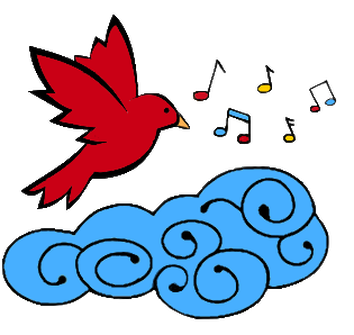|
In my early days as a student, I always found that learning songs helped me build my vocabulary. Do you remember the songs that we learned to be able to learn the alphabet or even the days of the week? Even though learning a new language can be challenging, by adding music to the mix can make the process more enjoyable and effective. In this blog, we'll break down the straightforward ways in which music enhances language learning. 1. Catchy Tunes Improve Memory Music's repetitive nature and catchy tunes help us remember things, and language learning is no exception. The rhythm and repetition in songs make vocabulary and grammar stick in your memory, providing a solid foundation for recall. Check out ‘The Ants Go Marching’ to see how children can learn out to count through song! 2. Perfect Pronunciation with Music Pronunciation can be tricky, but music is an excellent tool for honing this skill. There are some languages that are easier than others, so don’t get discouraged if you don’t get the pronunciation on point on your first try! By listening to songs in your target language, you can mimic the natural flow of words and practice how they are articulated. Singing along becomes a fun and effective way to refine your pronunciation. One of my favorite songs to sing to is ‘Où est ma tête’ by Pink Martini. 3. Explore Culture Through Lyrics
Song lyrics offer a cultural window into language. They contain colloquial expressions, cultural references, and idiomatic phrases that give you insights into the nuances of language use. Understanding the stories and emotions in songs adds depth to your language learning experience. 4. Emotions Drive Learning Music is a universal language of emotion, and this emotional connection can impact your language learning journey. When you associate positive feelings with the process, learning becomes more enjoyable and sustainable. Songs have the power to evoke joy, nostalgia, or inspiration, creating a positive backdrop for learning. Leonard Bernstein’s Young People’s Concerts taught me about the meaning of music that I would encourage you to check out. 5. Practical Ways to Include Music You can easily incorporate music into your language learning routine. Listen to songs, participate in karaoke-style activities, or use song lyrics as language exercises. Many language learning apps like also offer playlists tailored to specific languages, making it convenient to immerse yourself in the musical culture of your target language. Conclusion In the simple connection between music and language learning, a fun and effective path to mastery unfolds. Music helps you remember words, perfect your pronunciation, understand cultural nuances, and enjoy the learning process. Let the tunes guide you as you sing along to the words, and discover how the language of music can elevate your linguistic skills. Learning a new language becomes not just a task but a harmonious and memorable experience. If you are interested to learn more about our music and language courses, schedule a free consultation with us today!
0 Comments
Leave a Reply. |
AuthorWrite something about yourself. No need to be fancy, just an overview. Archives
June 2024
Categories
All
|
Music & Language Learning Center |
Music Classes |
Language Classes |
MUSIC AND LANGUAGE LEARNING CENTER 2024



 RSS Feed
RSS Feed

